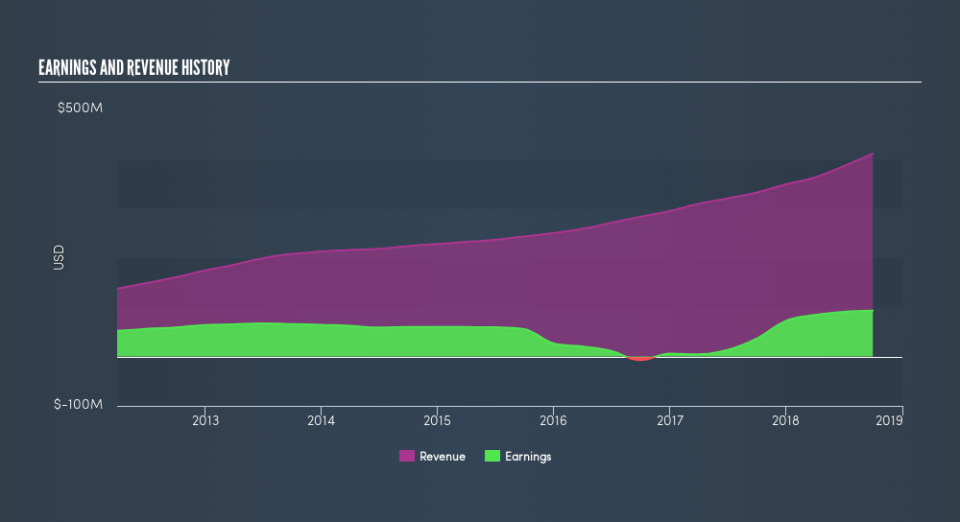Does The CAI International, Inc. (NYSE:CAI) Share Price Tend To Follow The Market?

Want to participate in a short research study? Help shape the future of investing tools and receive a $20 prize!
Anyone researching CAI International, Inc. (NYSE:CAI) might want to consider the historical volatility of the share price. Volatility is considered to be a measure of risk in modern finance theory. Investors may think of volatility as falling into two main categories. First, we have company specific volatility, which is the price gyrations of an individual stock. Holding at least 8 stocks can reduce this kind of risk across a portfolio. The second type is the broader market volatility, which you cannot diversify away, since it arises from macroeconomic factors which directly affects all the stocks on the market.
Some stocks see their prices move in concert with the market. Others tend towards stronger, gentler or unrelated price movements. Some investors use beta as a measure of how much a certain stock is impacted by market risk (volatility). While we should keep in mind that Warren Buffett has cautioned that ‘Volatility is far from synonymous with risk’, beta is still a useful factor to consider. To make good use of it you must first know that the beta of the overall market is one. A stock with a beta greater than one is more sensitive to broader market movements than a stock with a beta of less than one.
Check out our latest analysis for CAI International
What CAI’s beta value tells investors
Given that it has a beta of 1.86, we can surmise that the CAI International share price has been fairly sensitive to market volatility (over the last 5 years). If the past is any guide, we would expect that CAI International shares will rise quicker than the markets in times of optimism, but fall faster in times of pessimism. Many would argue that beta is useful in position sizing, but fundamental metrics such as revenue and earnings are more important overall. You can see CAI International’s revenue and earnings in the image below.
Could CAI’s size cause it to be more volatile?
CAI International is a small cap stock with a market capitalisation of US$508m. Most companies this size are actively traded. It has a relatively high beta, which is not unusual among small-cap stocks. Because it takes less capital to move the share price of a smaller company, actively traded small-cap stocks often have a higher beta that a similar large-cap stock.
What this means for you:
Since CAI International has a reasonably high beta, it’s worth considering why it is so heavily influenced by broader market sentiment. For example, it might be a high growth stock or have a lot of operating leverage in its business model. In order to fully understand whether CAI is a good investment for you, we also need to consider important company-specific fundamentals such as CAI International’s financial health and performance track record. I urge you to continue your research by taking a look at the following:
Future Outlook: What are well-informed industry analysts predicting for CAI’s future growth? Take a look at our free research report of analyst consensus for CAI’s outlook.
Past Track Record: Has CAI been consistently performing well irrespective of the ups and downs in the market? Go into more detail in the past performance analysis and take a look at the free visual representations of CAI’s historicals for more clarity.
Other Interesting Stocks: It’s worth checking to see how CAI measures up against other companies on valuation. You could start with this free list of prospective options.
We aim to bring you long-term focused research analysis driven by fundamental data. Note that our analysis may not factor in the latest price-sensitive company announcements or qualitative material.
If you spot an error that warrants correction, please contact the editor at editorial-team@simplywallst.com. This article by Simply Wall St is general in nature. It does not constitute a recommendation to buy or sell any stock, and does not take account of your objectives, or your financial situation. Simply Wall St has no position in the stocks mentioned. Thank you for reading.

